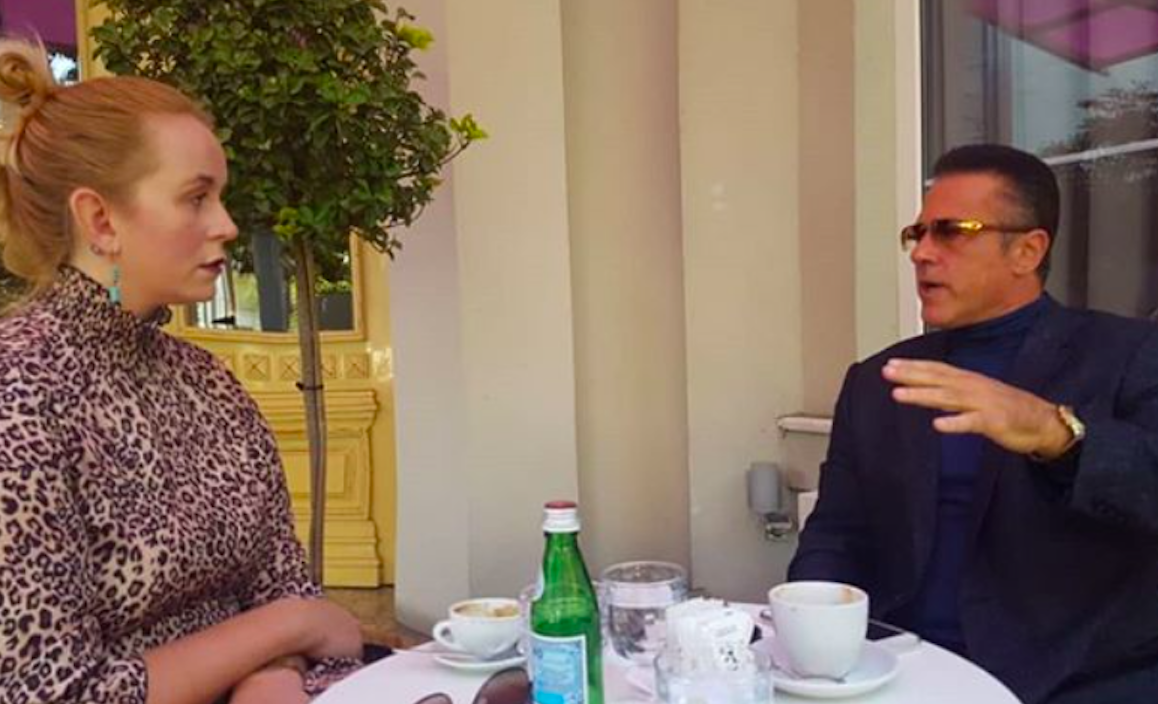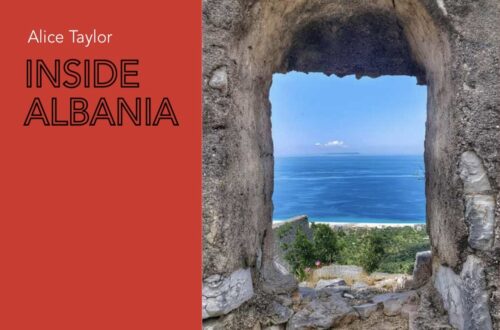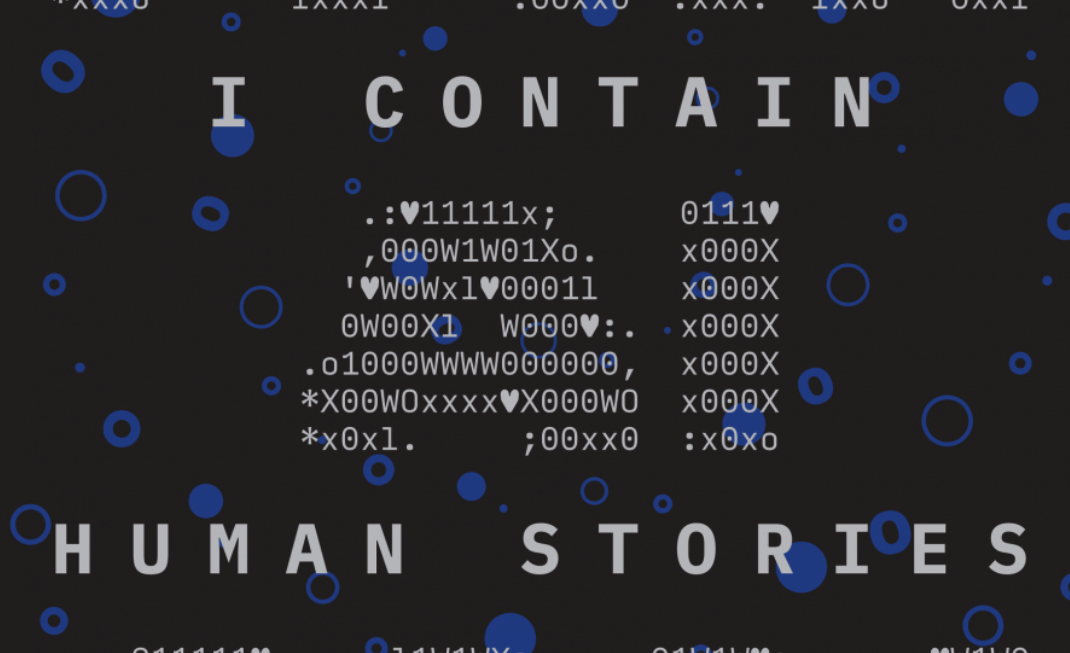As I walked up the steps of the Classic Hotel in Tirana, I glanced around looking for the subject of my latest interview. Above the chitchat of the lunchtime coffee drinkers, I could make out the unmistakable sound of a thick New York drawl with a hint of gravel. Impeccably articulate and expressive, his voice reached me a few seconds before I spotted him. John Alite sat respondent in a blue cashmere turtleneck, blue chinos, blue Gucci loafers, and a blue blazer, hair slicked back, with two-tone designer shades hiding his eyes. He smiled broadly with a mouth full of impeccable white teeth, and stood up, extending a hand as I reached out to greet him.
https://www.instagram.com/p/BpEw3G0Bez5/?taken-by=thebalkanista
The perfect mix of chilling and charming, we talked about the weather, his itinerary for the next few days, and what he thinks of Tirana, and as we discussed, laughed, and swapped anecdotes, it was easy to forget I was sat opposite a man who was responsible for the cold-hearted execution of a large number of people. As the coffee arrived, he slid his towards me, insisting I drink mine first- such a gentlemanly move from someone who had a reputation for some rather ungentlemanly acts.
I walked into this interview not knowing what to expect, and I walked out feeling exhilarated, fascinated, and if I am honest, ever-so-slightly unnerved. I didn’t want to interview John to hear about life in the mob, and I didn’t want to know the gory details of the various crimes he has committed, I wanted to get to the bottom of an age-old question. Can someone ever really change?
John Edward Alite was born on September 30th, 1962 in Queens, New York City to second generation Albanian immigrants with roots in Gjirokaster. His formative years were spent in Woodhaven, Queens before attending Tampa University on a scholarship. He claims he was introduced to the underworld via an uncle who took him to an illegal gambling den, and from there on, his life took a dark turn. Spending most of his life in and out (mainly in) of prison, he was a “mobster” from the tender age of 17 before becoming an enforcer for the Gambino crime family, and confidant of John Gotti.
During his 25-year career in crime, he confessed to murdering 15 people, shooting 37 more, and committing crimes such as assault, robbery, kidnapping, bribery, breaking and entering, attempted shootings, and a whole range of other offences. Many believe that his list of crimes could far surpass what was officially noted or confessed to, but that was certainly not a question I was interested in asking.

We talk about his upbringing in Queens where his father taught him and his brother how to box, pitting the boys against each other and instilling in them that they should never back down and that they should be men at all costs, regardless of the consequences. This is a story I have heard before and it is an attitude that is common within the traditions of the Albanian patriarchy- this notion that if someone hits you, you must hit them back harder, and that it is not possible to be half a man, only a complete one.
The conversation flowed between The Gotti’s, prison, charity, and his family, but there was one question that was burning in my mind- is he haunted by the things he did and does he regret them? With the slickness of a well-oiled politician, he dodged the question twice before sliding on his sunglasses to give me half of the answer I was looking for.
“Look if some guy came over here now and started hassling you, I would have no qualms in killing him or seriously hurting him. It’s just now, I don’t. I have had years of being out of that life, of therapy, and I have learnt to stay calm. But you never know, one day someone could push me, but now, I am out of that world.”
I felt my heartbeat race at this moment as again, the realisation of who I was interviewing sunk in. This was a man, who just a few years ago was associated with one of the most well-known crime families in the world. But, despite the implications of his answer, I could not help but admire his honesty. He completely acknowledges the things that he has done and he does not try to hide it, rather he focusses on the fact that restraint, change, and penance are all possibilities for those that find themselves going down a similar path.
Moving on from this uncomfortable line of questioning, there is one point that John is keen to make and that is how he is angry with the way his story is portrayed in the media.

“I wanna make something clear; the police never caught me with nothing. No guns, no drugs, never doing a robbery- they had no evidence against me at all. They (the Gotti’s) were the rats, they were the informants and they turned on me in a heartbeat to save their own skin. That’s when I said ‘enough’”.
Despite the media smear campaign and subsequent social media trolling campaign against him, he is adamant that he only told the truth about the Gotti’s because they informed on him first. The fact that these Mafiosi preached about respect, honour, and loyalty but would not hesitate to turn on him when the heat was on, is one of the contradictions about the glamourised Mafia that irritates him the most.
“When you get in deep enough and are caught in their web, you realise there’s no way out.”
This was a turning point for John and after going on the run, and doing time in a Brazilian jail, he eventually cut a deal with the US Authorities, served his sentence, and then turned his life around. His decision to inform on the Gotti’s was as a result of them informing on him first, not the other way round.
Now he spends his time between his family, working out, enjoying the second chance he has been given at life, and speaking to youth in the hope that many will not follow the same path that he chose to.
“I really enjoy life and don’t take it for granted anymore like I used to. I do not make excuses for my past, nor do I blame anyone for the path I took. A message I try to get across to troubled youth is that their past does not have to define them. Be positive. Stay positive. I murdered, robbed, beat up, sold drugs…you name it…but look at me now.”
He hates the Hollywood notion that the gangster life is one of success, wealth, and glamour. It isn’t, it is one of always looking over your back, horrific acts of violence, and not being able to trust anyone. He explains again that all of these notions of honour and ‘family’ are completely false in that world and that these underworld criminals would ruin their own mother if given half a chance. This is one of the reasons he is so vocal when it comes to speaking to youth- he feels he needs to bring them the reality of what life on the streets is like, to reiterate to them that it is nothing like the movies and that whilst you might be rich for a day, the reality is you will inevitably end up in prison or dead.
We discuss the prevalence of crime in Albania, particularly organised crime, drugs, and violence and an affinity for idolising the “gangster lifestyle”. He believes that this is a product of years of struggle and economic uncertainty but that it doesn’t have to be that way and that these violent solutions have no longevity for those involved.
I am keen to ask him about his involvement in advocacy against domestic violence, something that is close to my heart as well. He tells me in detail about the mentality of the people he used to spend time with and the fact that he is also guilty of raising his hand to a woman. Now he is out of that life and those influences, he finds great comfort in using his voice that many listen to, to explain that this is not the way to do things.
“One of my main messages in the talks I give is even if you think it’s your nature to get revenge on someone who’s bullied, harmed, or threatened to harm you or someone you care about, is that it takes a bigger man to walk away. I can at least say I’ve never killed a woman.”
The ease with which these words roll off his tongue is chilling at times, but I like the message that is forthcoming and the brutal honesty that is interlaced with every word. This is a message that no matter what hand life deals you, and no matter what horrific offences you commit, there is always a way to put it right. You can always improve your situation and turn your crimes into a story of what not to do. Because he has been there and done that, more so than many people could even begin to comprehend, he is in the perfect place to talk with authenticity and experience. He is not just standing there lecturing a room full of teenagers on what is right or wrong, he is telling them what he knows is right or wrong, based on his real experience on having done both, and survived.
Crime is never a means to a successful end, it is just a means to an unfortunate end and this is something John is determined to convey. The gangster life is not like the one you see on television and it is not what you hear in rap songs, it is a life full of treachery, double-crossing, and corruption, and to hear him describe John Gotti Jr as a “Chihuahua” really shows me how against that world he is now.

Do I think John Alite’s charity work is a personal penance for his crimes? Yes. Do I think that he can make a difference by telling his story to youths? Yes. Do I think he is a changed man? I would like to think so. There is still something in the lines that mark his face that un-nerves me; whether that is the memory of a lifetime of brutality or something darker that lingers there, I cannot tell. But I do believe one thing; it doesn’t matter whether John Alite has truly changed or not, what matters is that he is using his life experiences for good. He doesn’t make any money from the work he does with children or charities, he does this because he knows that people listen and he hopes that they will listen to the very real and very important messages that he has.
From made man to re-made man, John Alite is incredibly likeable, articulate, and interesting, but you can tell from the look in his eyes that he is not someone to be underestimated.
John has released several books that chronicle his life before, during, and after, life with the Gotti’s, as well as a film “Perfect Gangster”. You can find out more by visiting his website here. www.johnalite.com
Follow The Balkanista!




